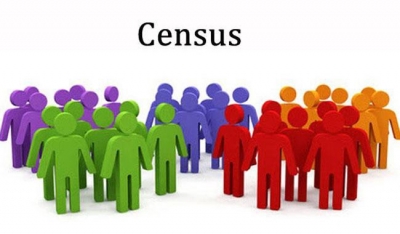
The people of the country, if they wish, will be able to self-enumerate online in the upcoming census as the government has amended the rules that allowed the census schedule to be both on paper and in electronic forms. But what is a census, when and why is it done? Let’s find out.
Extensive exercise
A census is an extensive exercise undertaken by a country to determine the size of its population. It is the process of collecting, compiling, analysing, and publishing demographic, economic, and social data relating to the citizens at a specified time. The information thus collected enables the government to analyse the country’s growth, monitor ongoing schemes and programmes, and plan policies for the future, thereby paving the way for good governance.
In India, the census is a decennial exercise, meaning it is undertaken every 10 years. Did you know the Indian census, considering its vast population, is one of the largest administrative exercises undertaken in the world?
Background
Population count is nothing new to us. It finds mention in the ancient Sanskrit text, the Rig Veda. It is said to have been in existence in some form since the 3rd Century for purposes of taxation and framing state policy. Even Ain-e-Akbari, the administrative report of the Mughal emperor Akbar, included details pertaining to population, property, wealth, etc. India has been conducting synchronous decennial censuses since 1881 (earlier it was conducted by local governments in different regions at different times). However before 1951 the censuses were conducted under the directions of the British Government. The 1951 census was the first undertaken post-Independence.
Confidential
The population census is a Union subject under the Indian Constitution and it is conducted under the provisions of the Census Act, 1948. The Act guarantees confidentiality, meaning information gathered during the exercise is highly confidential and cannot be accessed by anyone. The decennial census is conducted by the Office of the Registrar General and Census Commissioner, Ministry of Home Affairs (MHA). A census schedule contains over 30 questions (relating to name and gender of the head of the household, size of the household, whether the head belongs to SC/ST/Other communities, house number, predominant material of floor, wall and roof of the house, ownership of the house, availability of drinking water, lighting. latrine and bathing facilities, main fuel used for cooking, vehicles and electronic devices owned, Internet access, etc.) to be asked during the exercise. Non-compliance or violation of the provisions of the Act will attract penalties for the public as well as the census authorities.
First digital census
What is going to be conducted is the 16th census, which could not be undertaken in 2021 owing to the outbreak of the COVID-19 pandemic. It will be the first digital census with a provision for self-enumeration. The new rules define self-enumeration as “filling-up, completion and submission of the census schedule by respondents themselves”. It is also for the first time information of households headed by a transgender person will be collected. Apart from allowing the provision of online self-enumeration, home visits by enumerators for collecting census data will continue as in the past. However, the government is yet to announce new dates for the launch of the Census.
Picture Credit : Google




